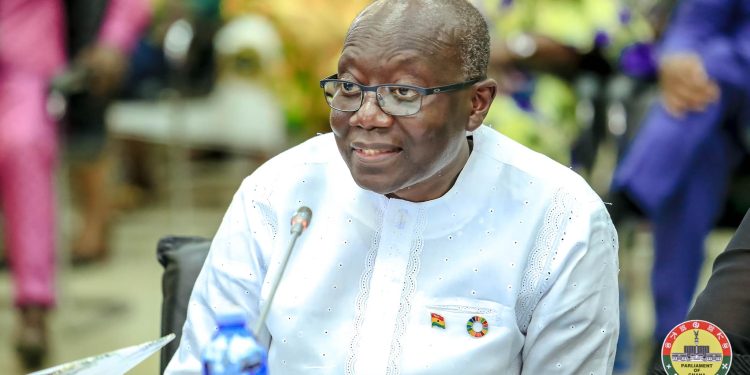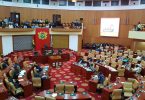In a move to align with current economic realities, the government of Ghana has revised its 2023 appropriation from ¢227.7 billion, as initially presented and approved in November 2022, to ¢206.0 billion. The decision to adjust the budget is in line with Regulations 24 sub-regulation (3) of the Public Financial Management Act Regulations 2019 (L.I. 2378).
The key drivers behind the downward adjustment in appropriation are attributed to two main factors: lower domestic interest payment and amortization, as well as a reduction in foreign-financed capital expenditure. These changes come following the successful completion of a portion of the Domestic Debt Exchange Programme (DDEP).
Finance Minister Ken Ofori-Atta explained the reasons behind the revision, stating that the move aims to balance revenue with expenditure. He highlighted that, during the first six months of the year, the government has made significant progress in surpassing its non-oil revenue targets, despite some shortfalls in VAT collection. However, the expected oil revenues fell short due to fluctuations in global oil prices. As a result, a downward review of oil-related revenue and corresponding expenditures is necessary to align with the underperformance of certain revenue sources.
One of the areas that will be impacted by the budget revision is the Annual Budget Funding Amount (ABFA), which is the portion of oil revenue allocated to fund priority projects and development initiatives. The reduction in oil-related revenue has necessitated a reevaluation of the allocation to ensure proper financial management and appropriate allocation of resources.
Despite the budget adjustments, the government remains committed to pursuing a robust growth strategy within the limited fiscal space and ongoing fiscal consolidation programme. Finance Minister Ken Ofori-Atta emphasized the importance of attracting domestic and foreign private sector investments and expanding production. To achieve these goals, the government plans to implement policies and work with various agencies to encourage and stimulate private sector investment.
Mr. Ofori-Atta also mentioned the Government’s Mutual Prosperity Dialogue with the private sector. This initiative aims to facilitate a conducive environment for doing business and attract both domestic and foreign investments. By improving the ease of doing business, the government hopes to create a more attractive investment climate that fosters economic growth and development.
the government’s decision to revise the 2023 appropriation to ¢206.0 billion from the previously approved ¢227.7 billion reflects the country’s commitment to prudent financial management and adapting to economic fluctuations. The reduction in domestic interest payment and amortization following the completion of the Domestic Debt Exchange Programme, as well as the decrease in foreign-financed capital expenditure, has prompted this budgetary adjustment. Despite these changes, the government is dedicated to fostering economic growth by encouraging private sector investments and facilitating a business-friendly environment through its Mutual Prosperity Dialogue initiative. As the year progresses, the government will closely monitor economic







